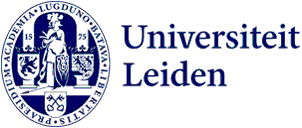
Why the mathematics of operations research is so fascinating – even for a layperson
Floske Spieksma will give her inaugural lecture as Professor of Mathematics of Operations Research on 1 September. A discussion about mathematical models, Venezuela, trembling knees, being the only woman, casinos, intuition and above all loving your field.
On hearing the title of her inaugural lecture – Optimisation: the More Fundamental the Better – you might not expect the over 250 seats to have been fully booked weeks in advance. ‘I’ve been here for a very long time so people are only to pleased to come along’, she says.
Spieksma’s field is the mathematics of operations research: mathematical techniques to analyse and improve processes within organisations. She became a professor two years ago, in the middle of the pandemic therefore, and wanted to minimise the chances of her inaugural lecture having to be online only and without a party. Coincidentally, Probability Theory is also her specialisation, despite her not having understood a word of it in the first year of her studies.
Probability Theory is also her specialisation, despite her not having understood a word of it in the first year of her studies.
Covid capacity
She was born in Venezuela – ‘I can call myself an ethnic minority’ – and studied Spanish and literature in Leiden before switching halfway through to mathematics: ‘At first I felt you had to be brilliant to do that but then I thought, knees a tremble: I’m going to try it for a year anyway.’
In the end, she graduated with distinction, obtained her PhD in 1990, did a postdoc, had a son as a single mother and supervised more than a hundred bachelor’s and master’s theses in the years that followed. A recent one was about a mathematical model for Covid capacity in university lecture halls, for example: the maximum number of students that fits with 1.5m distancing.
Can I do that?
She was appointed as a professor at the Mathematical Institute in 2021, just four years before she will retire. All these years have been more about loving her field than wanting to rise up the ranks: ‘Maybe women are a bit more modest’, she says. Or maybe she was preoccupied with the fascinating sums. At any rate, it was others who gave her the idea of becoming a professor. Just like back when a professor asked if she wanted to do a PhD. ‘I thought: can I do that? Despite having pretty high marks.’
Female mathematics professors are still in the minority. The first two in the Netherlands were only appointed in 1980. Spieksma is glad to be a professor now, despite the nagging thought at the back of her mind: ‘Is it because I’m a woman?’
Gentlemen
In her career she was often the one and only woman: early on at mathematics conferences, at meetings where the group was addressed with ‘Gentlemen’ and as the first female programme director of mathematics in the Netherlands. When she won a prize after her PhD, her boyfriend was congratulated while she was presented with the bunch of flowers for the prize winner’s partner.
She says that she has always been able to laugh off situations like this, but adds: ‘I don’t know how such things have affected my career and pay.’ In a passage in her inaugural lecture she says still finds it ‘difficult to stomach’ that she and her female companion were asked to resign from the management team a year and a half ago, ‘not because of poor performance’, she writes, adding: ‘Where a man can have a firm opinion, a woman with her own opinion on policy matters is dismissed as aggressive, disruptive or unprofessional by a senior manager, and she just has to swallow this.’
The chance of winning
Her inaugural lecture focuses on some examples from the mathematics of operations research. She describes these with so much pleasure that even a layperson with a phobia of maths hangs on to her every word. ‘Let’s imagine we’ve gone to the Monte Carlo casino for a night of gambling’, she begins one of her examples, before going into the chances of winning and losing in roulette.
‘How great is the chance that someone in the Netherlands will win the state lottery twice in a certain period?’
Which queue should you choose?
In another section she looks at whether you should join the shortest queue in the supermarket. She explains: ‘Imagine that exactly one customer per minute joins the queue and the cashier takes one minute. Without variability, it all goes well. But if it is a minute on average, gets slightly longer or shorter, the queue will get longer and will lose its balance. This chance effect is very difficult to comprehend because our intuition often lets us down. It’s the same with traffic jams.’ She wants to have solved this with her students before she gives her valedictory lecture.
Also fascinating: ‘How great is the chance that someone in the Netherlands will win the state lottery twice within a certain period, as my great-great-grandfather did around 150 years ago. A fun brainteaser for at home?’
Watch the live stream of Floske Spieksma’s speech.
Text: Thessa Lageman
